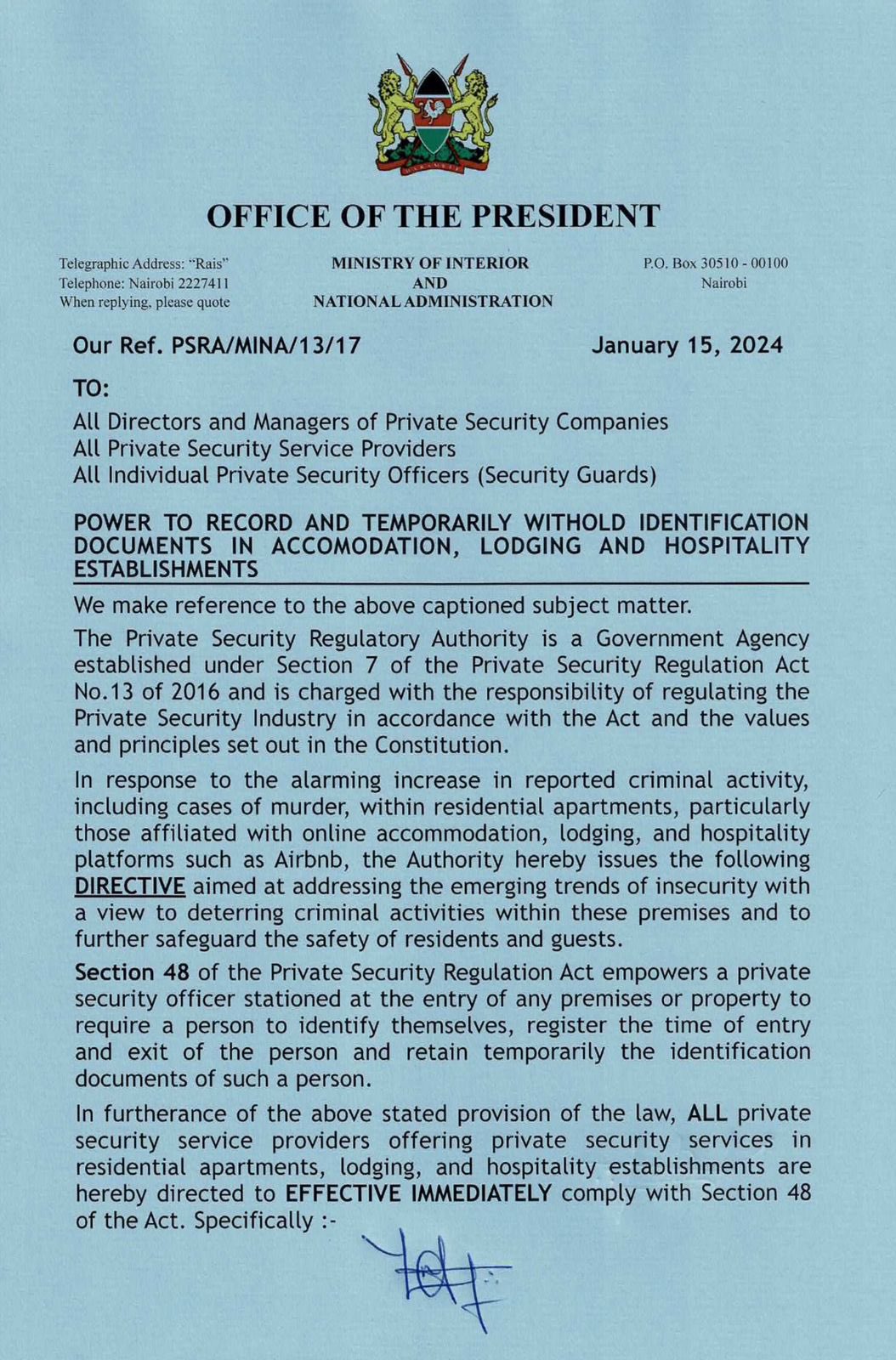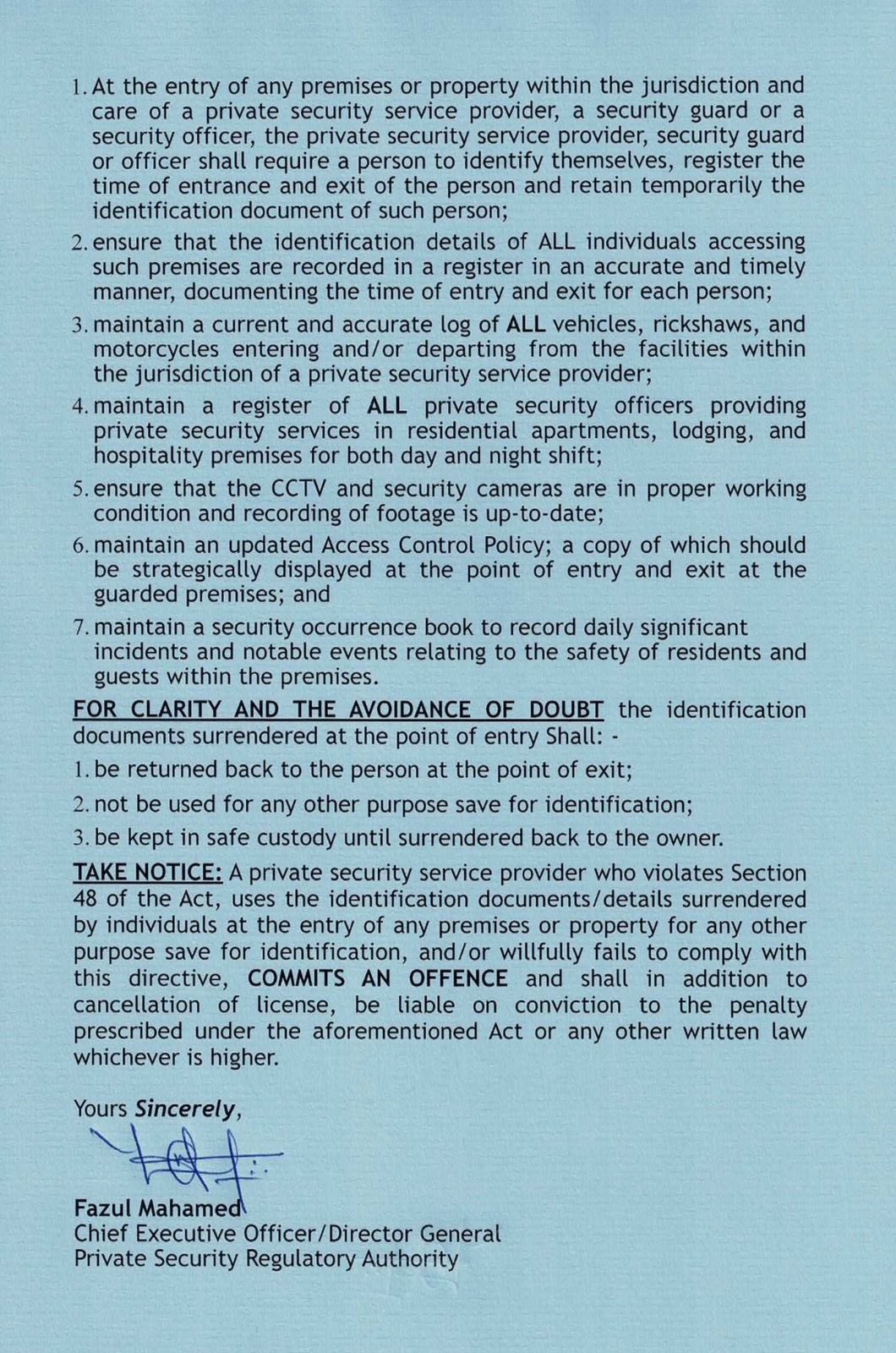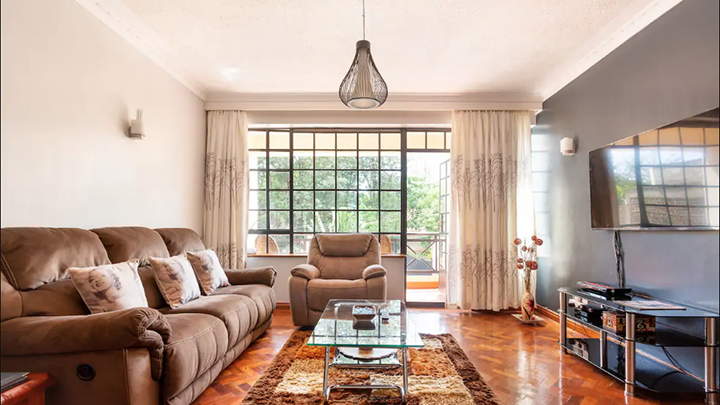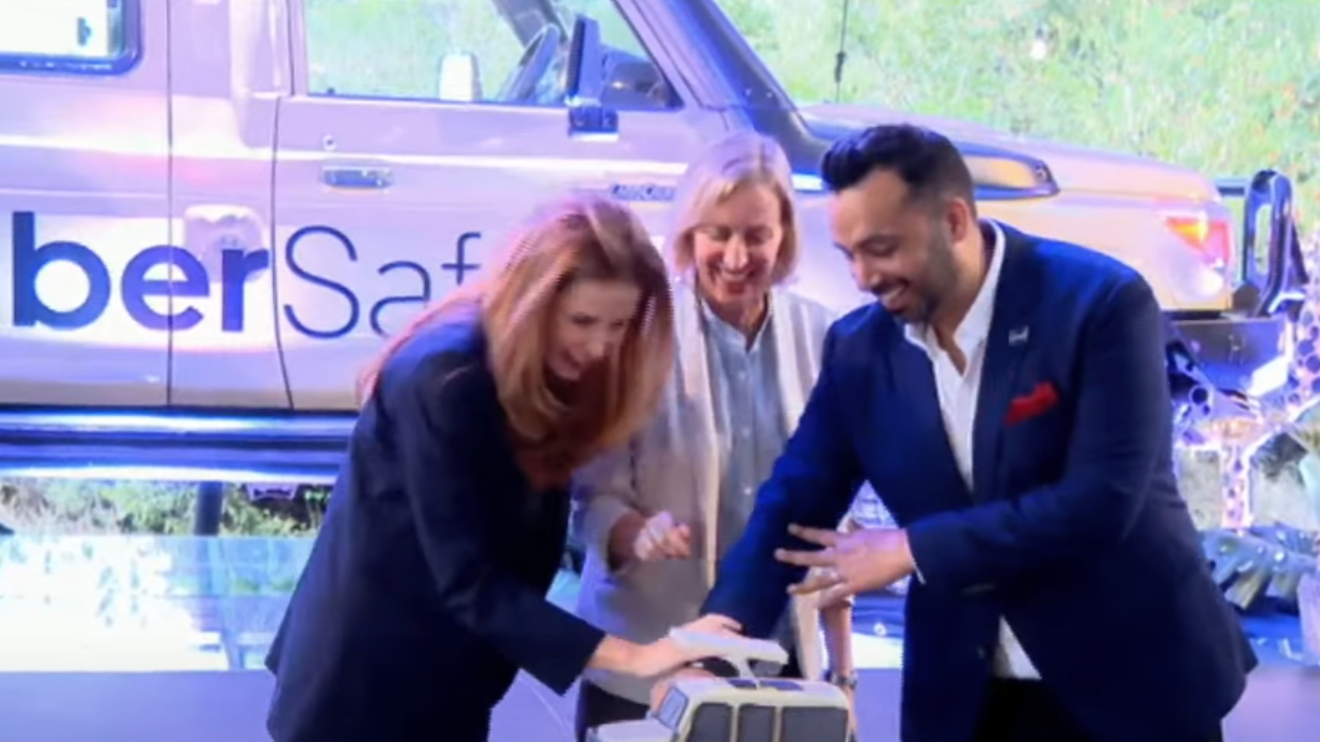Following the recent spate of unsettling killings linked with Airbnb spaces, the Private Security Regulatory Authority (PSRA) has issued a directive aimed at bolstering security measures within these popular short-term rental accommodations.
In the new directive, PSRA has mandated private security personnel to record and temporarily hold identification documents of all individuals entering and exiting residential apartments, lodging, and hospitality establishments.
This directive comes on the heels of several high-profile murders linked to platforms like Airbnb, raising concerns about guest safety and security in such spaces.
"The alarming increase in reported criminal activity, including cases of murder, within residential apartments, particularly those affiliated with online accommodation platforms, demands immediate action," stated Fazul Mahamed, Chief Executive Officer of the PSRA.
Read More
"This directive empowers private security guards to implement stricter access control measures to deter criminal activity and safeguard the well-being of residents and guests."
Under the new guidelines, which take effect immediately, security guards will be required to:
Demand identification: All individuals entering the premises must present valid IDs, which will be temporarily retained and returned upon exit.
Log details: Entry and exit times of every visitor must be meticulously recorded in a register, ensuring clear accountability.
Vehicle checks: A log of all vehicles, rickshaws, and motorcycles entering and leaving the premises must be maintained.
Security personnel registry: A current and accurate list of all security officers working both day and night shifts must be readily available.
CCTV vigilance: CCTV cameras must be in proper working order, capturing footage for potential investigations.
Clear access policy: An updated Access Control Policy should be prominently displayed at entry and exit points.
Incident log: A security occurrence book must be kept to document significant incidents and events related to resident and guest safety.
Crucially, the directive emphasizes that ID documents must be returned to individuals upon their exit, used solely for identification purposes, and kept securely until then.
Non-compliance with these regulations can lead to the cancellation of a security service provider's license and potentially, hefty fines.
This move by the PSRA marks a significant shift in the security landscape of short-term rentals in Kenya.
While some residents and guests may find the mandatory ID checks intrusive, the aim is to prioritize safety and deter potential criminal activity within these often-transient spaces.
The effectiveness of this directive will depend on its consistent and ethical implementation by private security personnel, striking a delicate balance between security and individual privacy.
With the popularity of platforms like Airbnb continuing to rise, the question of guest safety remains paramount.
The controversial directive by PSRA signals a proactive approach by the government to address security concerns within short-term rental accommodations for both residents and guests even as it is bound to be met with resistance from pro-data protection and privacy activists.
Below is the full statement by PSRA:





 shares a light moment with the company's Group CEO Dr Patrick Tumbo (right) at a past event-1758121528.jpeg)
-1758116028.jpeg)



